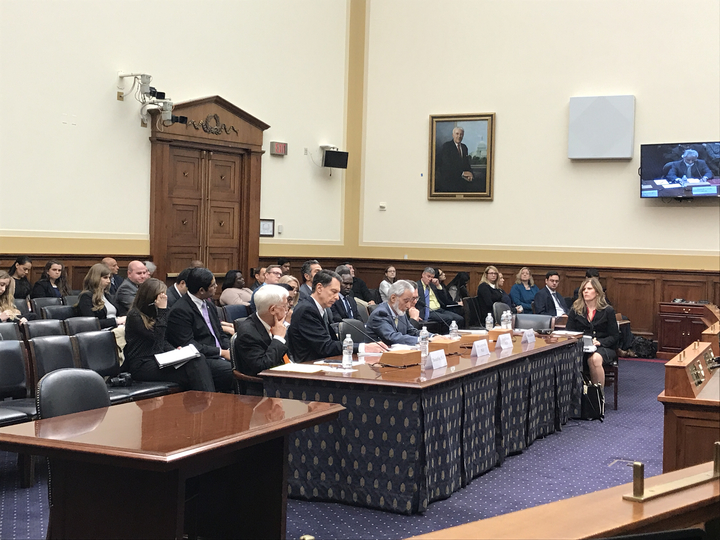WASHINGTON — Promoting religious freedom is the only way to counter violent religious extremism, but the U.S. is focused more on military action against terrorist groups, the president of Religious Freedom Institute said at a congressional hearing on Wednesday.
The U.S. government’s lack of commitment to help protect these rights is worsening the global trend of extremism, Religious Freedom Institute President Thomas F. Farr added as rights for the free exercise of religions are diminishing globally.
“This is a U.S. national security problem,” said Farr. Protecting the rights of non-Muslim minorities and encouraging anti-extremist Muslim voices to advocate for a nonviolent interpretation of Islam will create stability in conflicted Islamic countries, he said.
“We will prevail against Islamist extremism only when we expand our national security strategy to include the advancement of religious freedom,” he said. “More religious freedom abroad can help prevent that spread of terrorism and protect Americans here at home.”
Farr said that the U.S. counterterrorism policy focuses almost exclusively on the use of military force.
John Lenczowski, president of the Institute of World Politics, agreed, and added that the U.S. does not have the capabilities needed to successfully promote religious freedom. He suggested creating a government agency to fill this need.
“The U.S. government is intellectually, culturally and organizationally unprepared to combat both elements of the radical iihadist threat and fight a true war of ideas,” Lenczowski told the House Subcommittee on Foreign Affairs. “What must be done is to create a new U.S. public diplomacy agency that will become a new bureaucratic empire within the State Department.”
Lenczowski said such an agency would take over the functions of the now-defunct U.S. Information Agency, which had the capability to conduct ideological warfare until it was eliminated in 1999. The new agency would include many offices, including an office to counter jihadist propaganda and an office to provide counterintelligence protection of U.S. diplomacy programs.
The 1998 International Religious Freedom Act allows sanctions against countries that persecute some religions, but they are rarely imposed.
Last year, Congress passed a bill which President Obama signed into law that provided specific tools for the State Department to implement religious freedom into U.S. diplomacy. Among other provisions, it allows the president to designate “violent non-state actors,” strengthen investigations into religious persecutions and requires religious freedom training for all foreign service officers.

